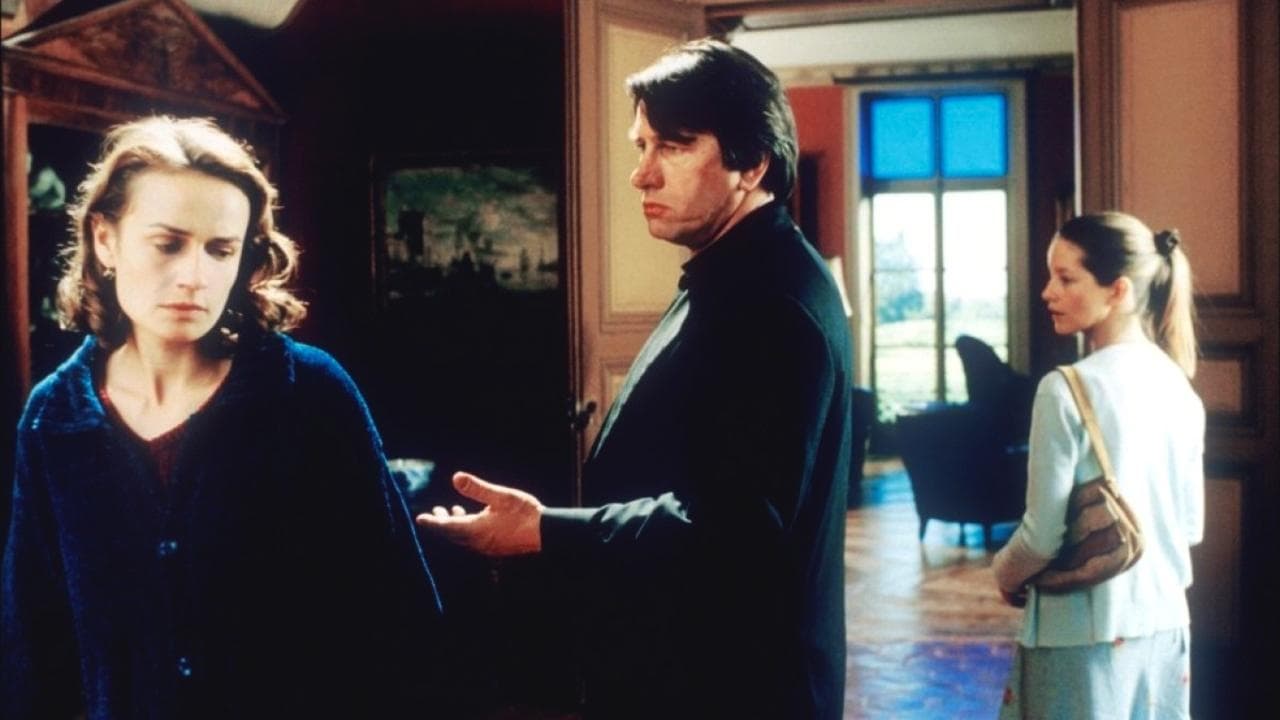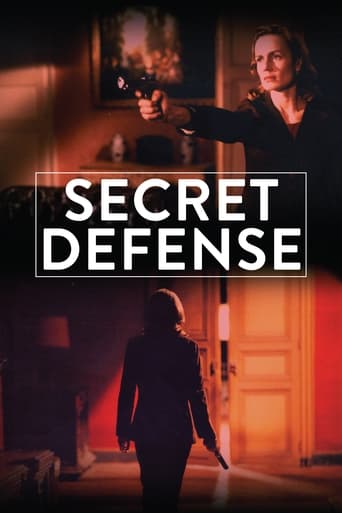


I read the comment posted on the sight and felt I had to give a counterbalance... I saw this film about two years ago on a basic VHS copy and was astonished. Yes of course you need to be prepared to deal with a long playing time, and a pace that may at first appear on the slow side, but BUT... ...Rivette pulls off an extraordinary coup in managing to ratchet up the sense of paranoia so intensely that, by about a third of the way through the film, you find yourself watching even the most innocent, apparently event-less scene with total rapt attention. Essentially taking core Hitchcockian suspense techniques and pushing them almost even further than that Master did, this has to be seen to be believed, in my opinion. Bonnaire is extraordinary; you become engrossed in just watching her thinking! The whole thing is a text book example of how to manipulate the viewer's mind to such an extent that they end up directing the film themselves... My only cavil might be the ending - I needed perhaps a touch more to be brought out onto the surface, but otherwise, (and certainly if you know Rivette's other work) open your mind and try it.
... View MoreFor a start, it's not as boring, stale and jejune as Greek mythology. Really not up to Out 1, Merry-Go-Round, etc., but definitely a nice watch.However, someone has posted a comment making this movie "a modern Electra". That's not true. Of course, Electra must have been very much in Rivette's mind when conceiving the script. But the influences are far richer than just the Electra myth, and Rivette presents a much more subtle story than just a modern Electra. The most significant difference might be the motif for the murder of the father. Agamemnon was not murdered for noble reasons (as th father in the movie), but because Clytemnestra had an affair and wanted to get rid of him. This takes us away from the primitive Greek "A sleeps with B's C", "C's D therefore kills B and A's E", but then "E's F tries to sleep with A and F's G before killing himself, but fails to kill C" etc. Of course, we never learn in the movie where the brother got the photo (which reminds one of the oracle telling Electra's brother to get a revenge for the murder of their father), but then again, all the stuff about shooting the wrong person has nothing to do with the story of Electra. Well, notice the complete lack of intervention by the gods (in this case, mostly Appolo and Athena) in the movie; once again, something without which a Greek myth isn't a Greek myth anymore. Also, the nice twist at the end of the movie - Sylvie getting shot herself, again by accident - has no counterpart in the Greek myth. The story of the real Electra actually ends sort of well after Orest is found not guilty by the judges.On the side: The story of Electra can only be told faithfully if there is a story of a war in the background. Well, in the movie there isn't.So, please... It's really nice for some people that they are oh-so-cultivated. But they should either come up with a subtle analysis of the links between a modern script and some Greek (or otherwise classical) subject, or leave it.Anyway, having read the comment which turns "Secret Défense" into a remake of Vertigo, I should have to apologize. At least Electra clearly is intended reference/source of inspiration... whatever. On the other hand, the comparison with Vertigo and the comparison of Vertigo to Greenaway's "Cook, Thief, Wife, Lover" is so far fetched you cannot even see where the commentator got the idea. I've noticed the tendency of some (mostly Americans) to think of Hitchcock as the center of the cinematographic universe. Let me tell you: He isn't. He has made some entertaining films, but they are mostly based on overacted simplistic scripts, which fake psycho-grammatic depth but really just display simple psychologically prototyped characters.About the title of "Secret Défense". Those (non-native speakers of French) who are wondering about the strange ordering of adjective and noun in the title in French should go here: http://fr.wikipedia.org/wiki/Information_classifi%C3%A9e_en_France In this light, it is of course stupid of the US distributor to call the film "Secret Defense" in English - because that, as far as I can judge, means something completely different (i.e., it just has its literal meaning in English).
... View MoreYou know a movie is a great movie not when it is quoted. Many are. It is great when following filmmakers assume it as part of the world and reinvent it the same way they do to experiences in "real" life. I'm not as wild about Hitchcock's complete work as others, but "Vertigo" and another of his films are among the most important and surely on any short list from Hollywood.I've had the pleasure of screening "Vertigo" together with two of its most interesting children.First, you know the story in Vertigo, about a play within the play that is a more like a play within life. The way it is constructed (except for that dumb camera trick that everyone fawns over) emphasizes manifold details about illusion and the illusion of film-making. But the thing is abstracted from life, as all normal movies must be. We know from thousands of conventions when watching that it is a staging of life, not life.There's one scene in Vertigo, where our hero discovers his love in a restaurant. There's a change in color and mood. Peter Greenway took this one scene and layered a whole new film reality on "Vertigo." It is as abstracted from the world of Vertigo as Vertigo is from life.In Greenaway's "Cook, Thief, Lover," the world is indeed bifurcated into the "kitchen" where things are created and the "serving room." Moving from one to the other changes colors in accord with Vertigo. "Cook, Thief" deals with the same issues as Vertigo but with more abstraction: books, love and watching movies as literally eating people.Now we have this, which moves to the other side. It attempts to deal with all the issues and methods of "Vertigo" but by deabstracting into the real world. In the real world, events do not arrange themselves for theatrical convenience. If we need a character to go from the city to the country to do a killing, it takes some time.Accidents occur. Some motives never become clear. When a murdered girl's twin shows up and takes the place of her sister in the bed of a conspiratorial man with an officially secret life, we expect plot turns and surprises. They never come. This is life embossed with a movie.That is, until the very, very last scene. This is extremely stylized as if to gently bring us back to the movie world we thought we were entering at the beginning.There are few French filmmakers of any era worth following. This is one.Ted's Evaluation -- 3 of 3: Worth watching.
... View MoreModern version of the Elektra-myth, keeping rather close to the original (if you look closely), but making sense, in the typical Rivette way, also as a wild story of crime, revenge and love apart from the myth. Sandrine Bonnaire alone is worth the film.
... View More